Massachusetts STEM Summit attendees, welcome!
Click here to sign up for our email list
Click here to send us an email if you have questions
Here are some highlighted resources from our virtual booth:
Designing Biomimetic Robots
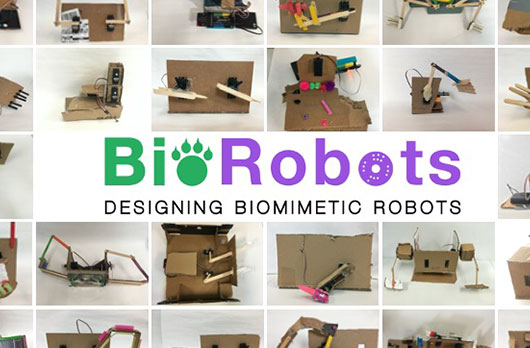
Designing Biomimetic Robots is an interdisciplinary learning curriculum that integrates science, engineering, and computing to engage middle school students in biomimicry design challenges. To learn more about the project and download curriculum materials, visit https://www.terc.edu/biorobots/
The STEM Education Evaluation Center (SEEC) at TERC
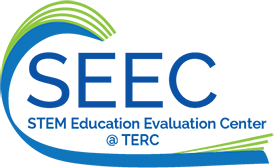
SEEC offers evaluation, research, and consultation for STEM education programs and projects. We are experienced researchers and evaluators with expertise grounded in theory and practice and applied across STEM education settings. SEEC’s research and evaluation supports projects with a range of audiences across STEM fields. We are especially committed to conducting work that expands access to, opportunity for, and participation in meaningful STEM learning for underrepresented populations. Explore who we are and learn more about our work at https://www.terc.edu/seec/.
Storytelling Math books
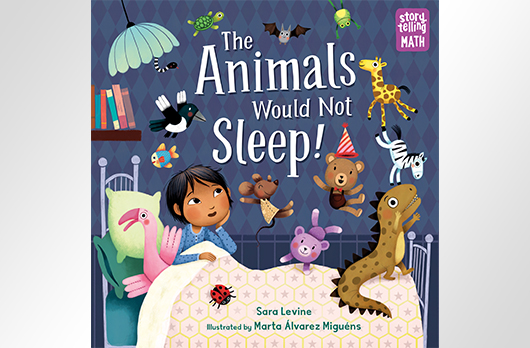
TERC is collaborating with Charlesbridge Publishing to develop picture books that meld story, racial diversity, and math and are written by “ownvoices” authors.
Storytelling Math celebrates children using math in their daily adventures as they play, build, and discover the world around them. Joyful stories and hands-on activities make it easy for kids and their grown-ups to explore everyday math together. Click here to learn more.
Signing Math and Science Dictionaries
Signing Glossaries for Science Exhibits
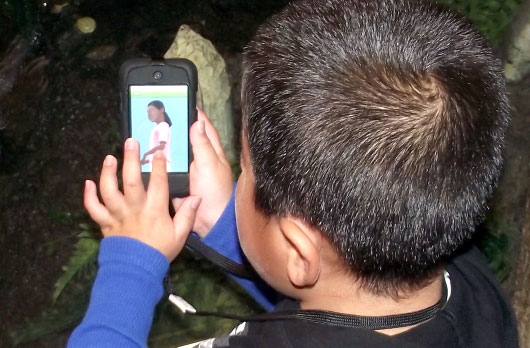
For Signing Math & Science, TERC and Vcom3D used SigningAvatar® assistive technology to develop illustrated, interactive 3D standards-based sign language dictionaries that offer students in grades K-8 and 9-12 who are deaf and hard of hearing increased access to the same learning opportunities that hearing students enjoy. The dictionaries are available as Web, Video, and iPhone Apps versions. Click here to get the apps.
Six signing glossaries delivered as apps to provide visitors ages 5-12+ who are deaf or hard of hearing access to STEM vocabulary during visits to aquariums, botanical gardens, natural history museums, nature centers, science museums, and zoos. While museums are closed, they can be used when visiting museum websites and “virtual field trips!” Click here to get the glossaries.
Read about the newest addition to the signing dictionary catalog, the Signing Bioscience Dictionary, in this article from Hands On! https://blog.terc.edu/introducing-the-signing-bioscience-dictionary
Aprendiendo
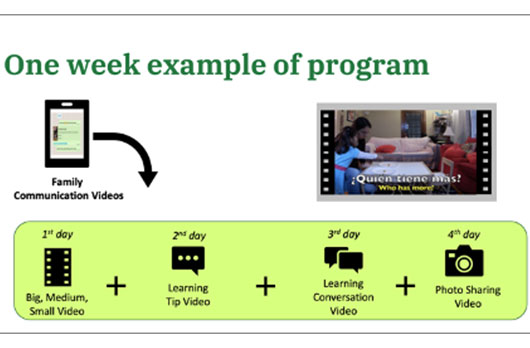
Aprendiendo is an innovative research program addressing the digital divide by creating short, engaging videos modeling mathematic activities and sending them to families through a free mobile app. Included is a Lessons Learned Flyer that can help educators learn the most effective ways to communicate with parents. Click here to learn more.
Data Clubs
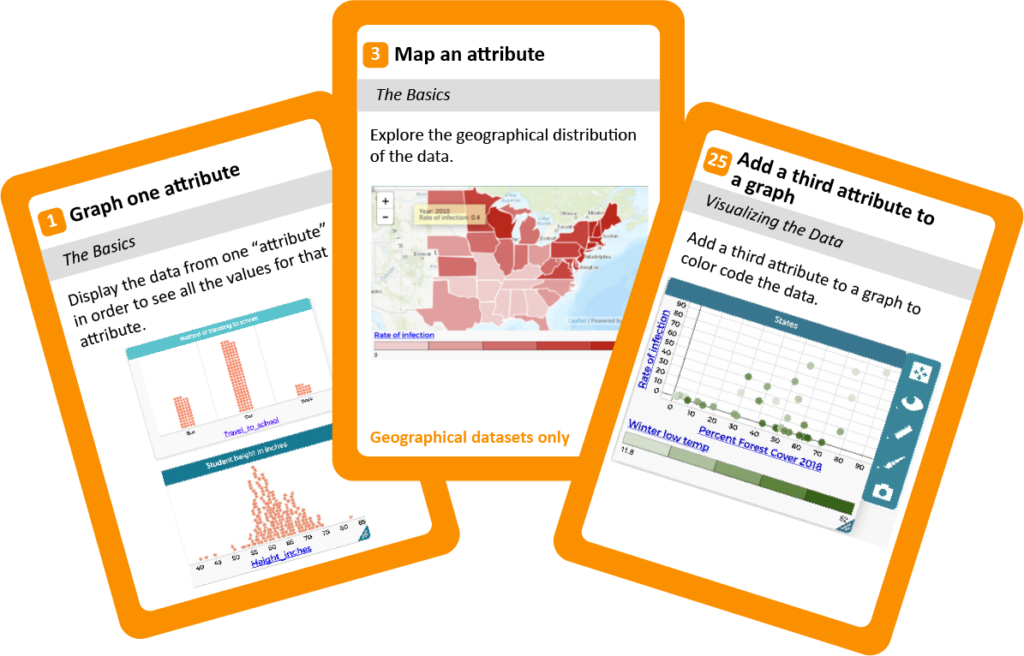
Data Science Activities for Middle School Youth
The ability to make meaning with data has never has been more important. The Data Clubs project believes that middle school learners can and should know how to interpret data to make decisions and manipulate data to answer their own questions. This project introduces middle school youth to the power of data and gives them simple tools for visualizing and analyzing data on topics they care about.
Three modules engage them with “big” data—large data sets collected by government agencies (e.g., NOAA and the Census Bureau), research institutes (e.g., the Pew Center) and international collaborations (e.g., the Census at School project) —curated by the Data Clubs team.
Click here for free downloadable modules.
Free resources blog post
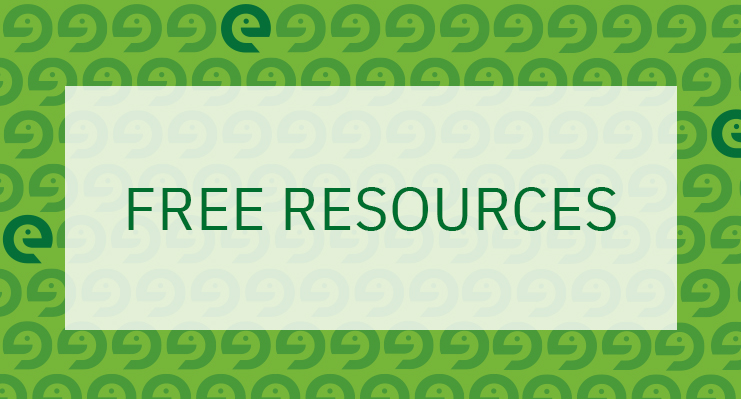
We understand that with schools closed children are home and in need of ways to keep their minds engaged. The link below is a collection of free TERC resources to help educators, parents, students, and others cope with school closings and quarantines. These resources were created by our math and science education and research experts and funded by the National Science Foundation along with other funding agencies. https://blog.terc.edu/free-educational-resources
Focus on Energy
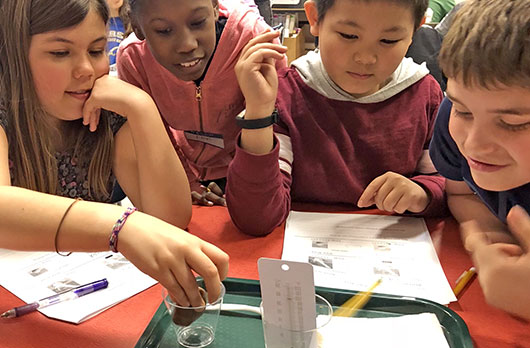
Get Ready to Teach about Energy! The Focus on Energy curriculum uses an innovative approach for teaching and learning about energy in grades 4-5. Students use a set of energy tracking questions and representations to reason about energy. As they engage in firsthand activities, students learn to construct coherent explanations of energy flow in contexts ranging from ball collisions to solar panels. Click here to learn more.
Head Start on Engineering

Welcome to the Head Start on Engineering project! Practicing engineering design skills and problem-solving strategies is a powerful way to support young children’s learning and to prepare them to be successful problem solvers in school and life. It also a great way to spend time together as a whole family!
Engage with engineering design by exploring and downloading these free, bilingual (Spanish/English) activity ideas and resources designed for preschool-age children (3 to 5 years) and their families.
The HSE initiative includes both program development and implementation, as well as research with families. Click here to learn more and download activities.
Investigations
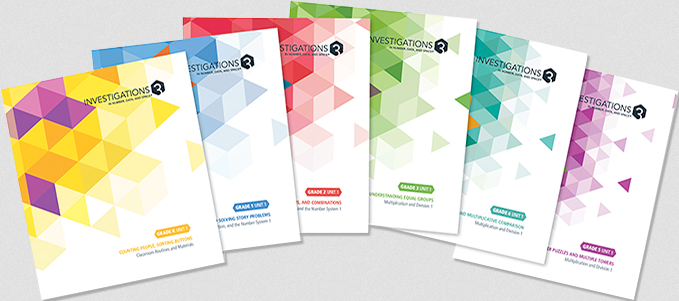
Investigations 3 is a focused, coherent, and rigorous K-5 mathematics curriculum. Fully aligned to the content and practice standards of the Common Core State Standards (CCSS), deep and careful attention is paid to mathematics content and to student thinking and understanding. Making sense of mathematics is the heart of the work, for students and teachers. Click here for more information.
Investigations PD
Investigations PD offers workshops, online courses, and customized professional development opportunities that promote mathematics teaching and learning in an in-depth way. Sessions involve doing math, looking deeply at math content, discussing and analyzing math teaching and learning, planning, looking at student work, and watching classroom video.
Now offering burst sessions: In these 30-minute sessions, Investigations authors discuss differentiation in Investigations 3. Learn more about supporting the range of learners in the elementary mathematics classroom. Click here to learn more and to sign up for an upcoming session.
Innovate to Mitigate
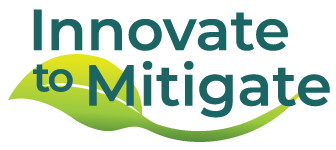
Innovate to Mitigate engages 8th–12th grade students in a competition to mitigate climate change by designing an innovation that reduces greenhouse gases. Students work in teams to brainstorm an idea and develop and test a prototype solution. They submit a brief video and paper that makes the case for their innovation. The Innovate to Mitigate community of students, teachers, and scientists provide crowdsourced support for teams as they participate. Click here for more information.
INFACT – Including Neurodiversity in Foundational and Applied Computational Thinking
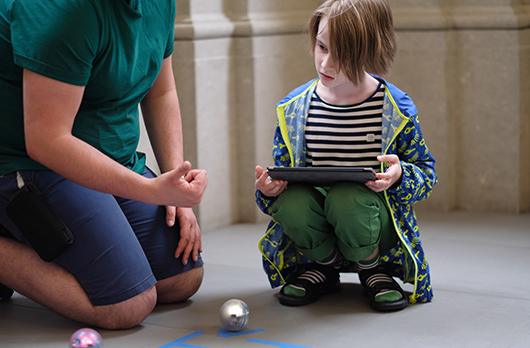
EdGE at TERC is working with a team of leading researchers and practitioners to design, develop, and implement a comprehensive and inclusive program for computational thinking in grades 3-8. This program will embed supports for attention, metacognition, and social-emotional learning and use educational data mining to make supports and pacing customizable for the strengths and struggles of each unique learner. Click here for more information.
Adult Numeracy Center
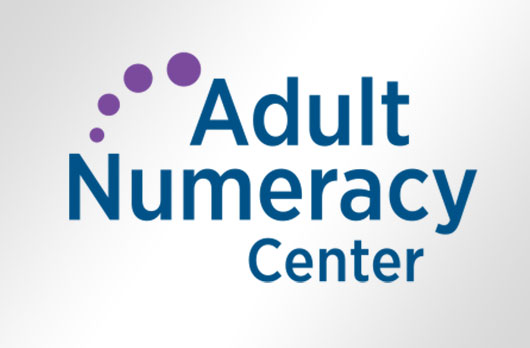
Creating engaging mathematics learning experiences has long been a focus of TERC’s work. Numeracy — the ability to manage the quantitative demands of a situation to solve problems in real contexts — is at the heart of much that adults need to do. The Adult Numeracy Center at TERC helps adults and young adults understand how math is present and relevant in everyday life, and how they can use this knowledge to improve their lives and communities. The National Research Council’s definition of mathematical proficiency guides our work with learners, teachers, directors, and professional development providers. Together with state and local partners we build capacity to offer high quality math instruction in adult education programs, community colleges, community-based organizations, the corrections system, and workplace education programs. Click here for more information.
